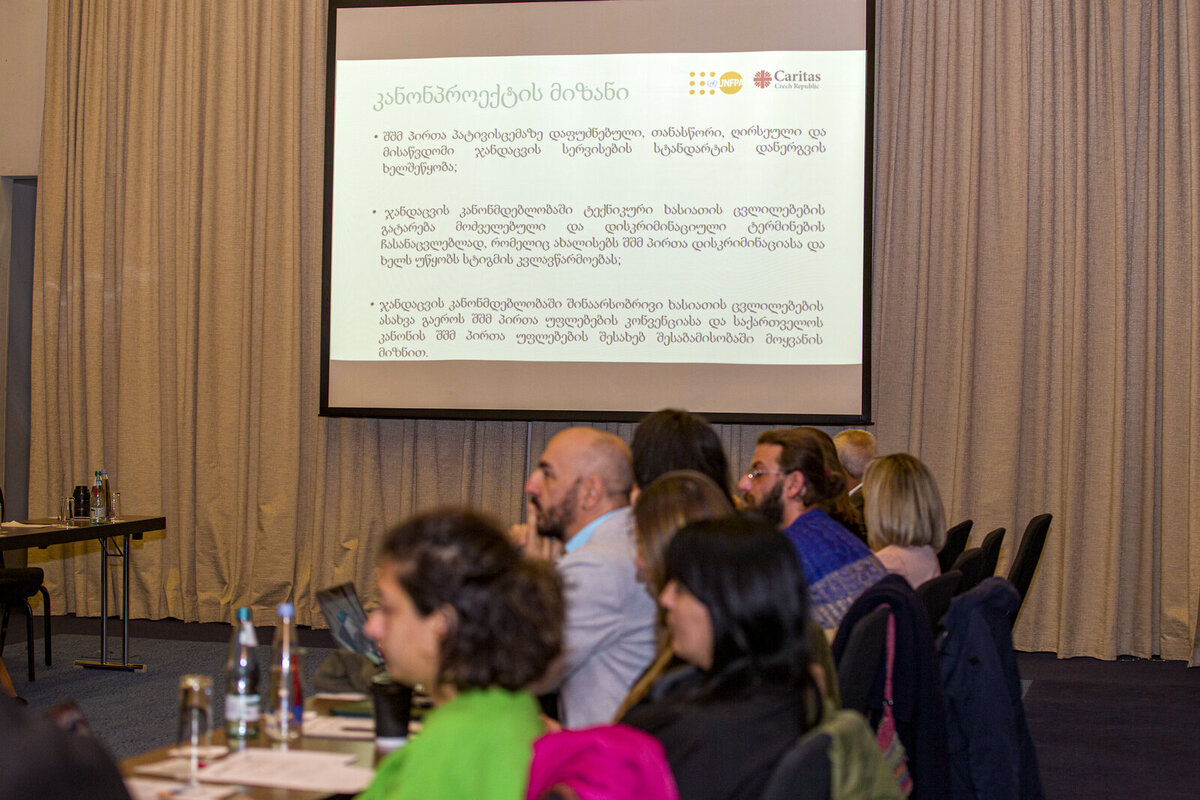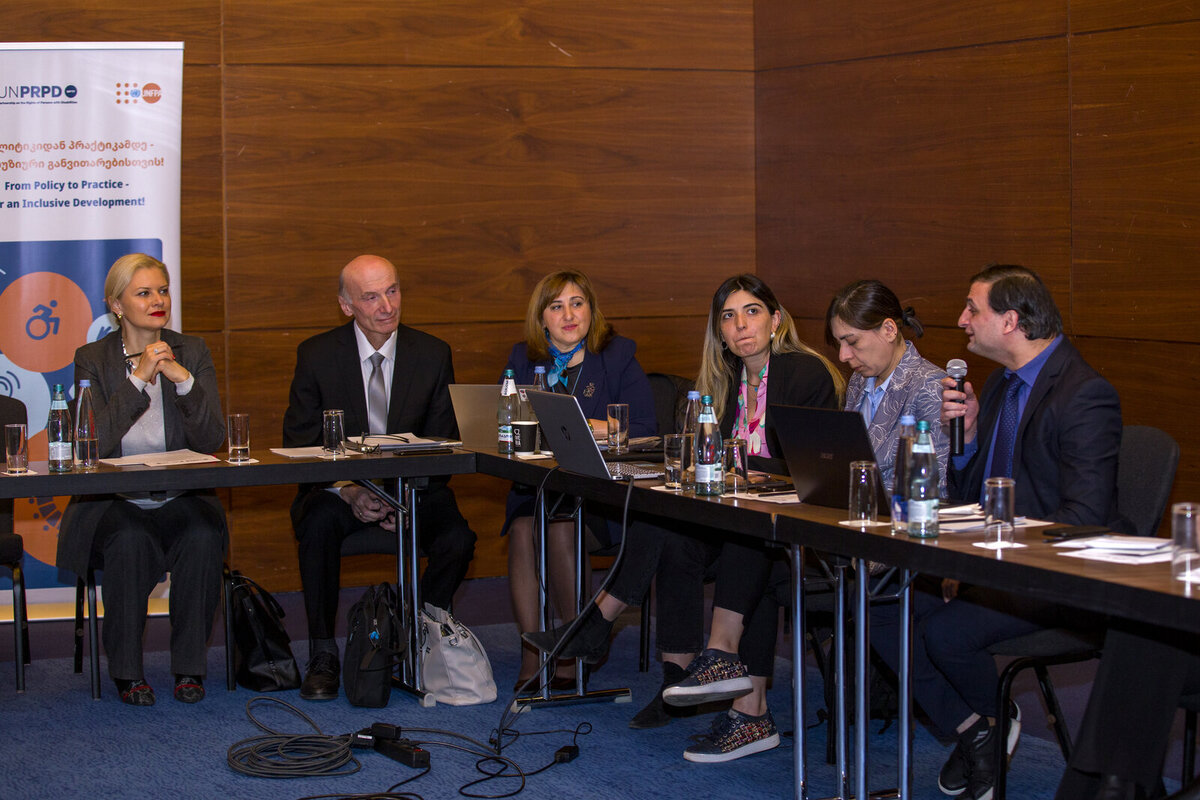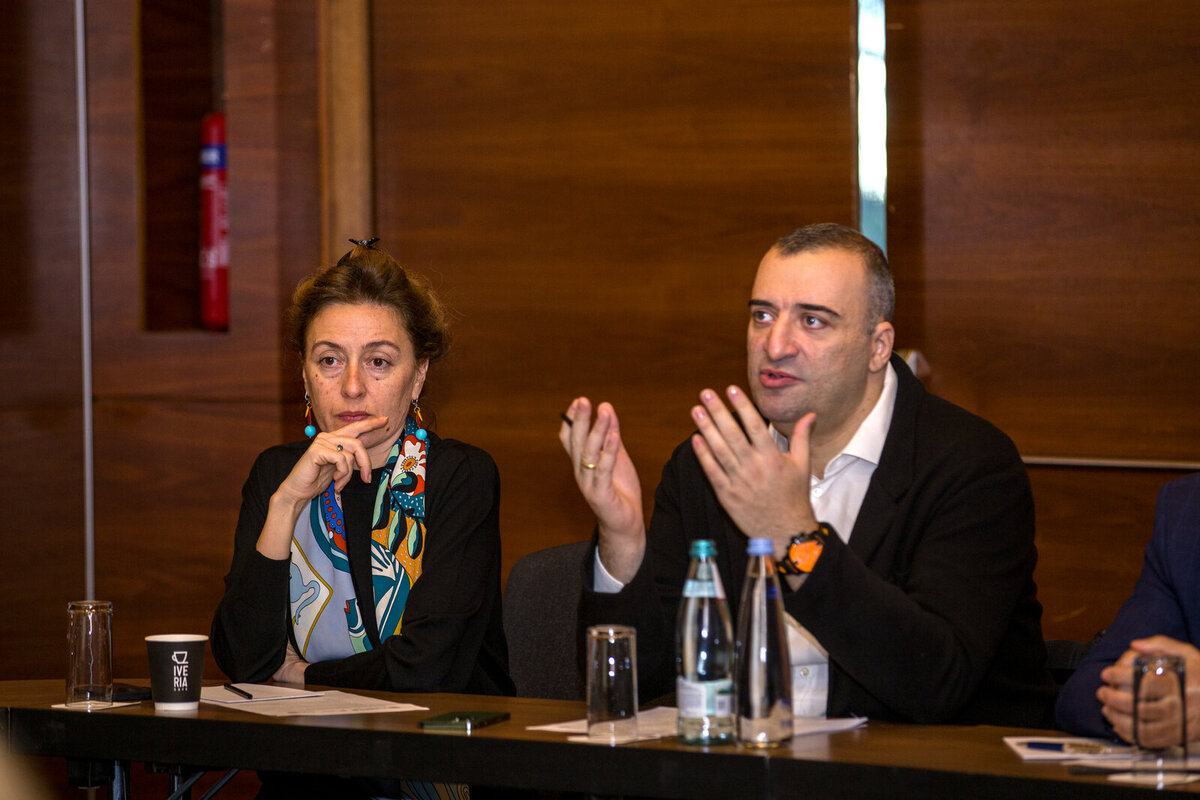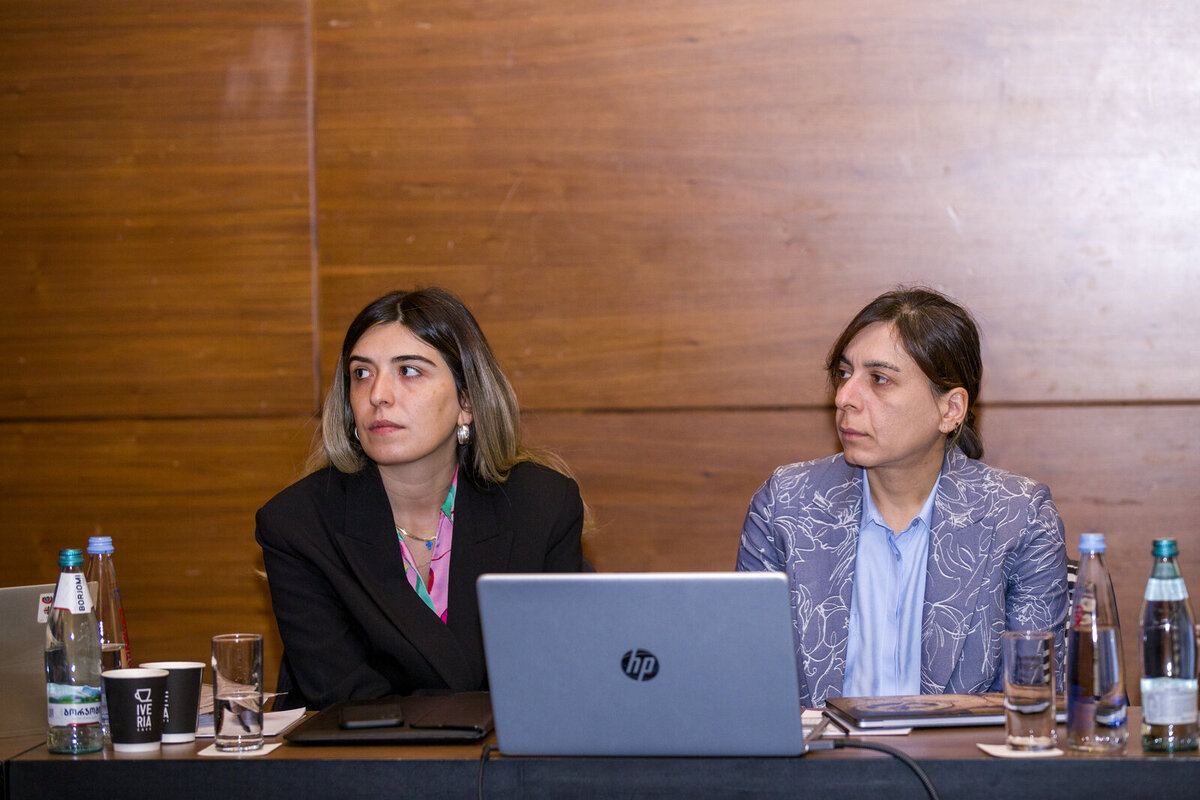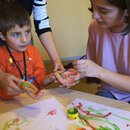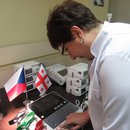Persons with Disabilities still face various challenges when accessing health and social care services in Georgia. This concerns not only physical access to healthcare facilities but also other barriers such as attitudes and stigmas, and lack of respective skills among healthcare professionals. To address this problem, our organization is involved in a project that will lay the foundation for ensuring equitable and inclusive access to quality and gender-sensitive healthcare services for persons with disabilities.
Persons with disabilities work on legislative initiatives themselves
Persons with disabilities in Georgia still face many challenges. In our country, one will rarely meet an adapted environment in which a person using a wheelchair will be able to move independently. In addition to physical barriers, these people often face stigma and discriminatory attitude from society, including medical personnel.
In response to this problem, since 2022, Caritas Czech Republic and the United Nations Population Fund (UNFPA) Georgia Country Office are working on a joint initiative that will support the implementation of the UN Convention on the Rights of Persons with Disabilities (CRPD) under the Joint Programme “Leave No One Behind — From Policy and Principles to Practice in Disability-Inclusive Development in Georgia”. The goal of the project is to contribute to the revision of the legal foundations to ensure the development of gender and disability-sensitive standards of practices during the provision of medical services including sexual and reproductive health services.
Within the framework of the initiative, experts together with the representatives of the the Parliament of Georgia, as well as with the community of persons with disabilities and the organizations working on their rights are working on legislative initiatives.
“Disability and Human Rights in the Healthcare Sector” – the summary meeting of the year was held in the format of a round table
“Disability and Human Rights in the Healthcare Sector” – in November, our organizations initiated aa working meeting in the format of a round table. At the event, the persons with disabilities themselves presented the relevant legislative initiatives and asked the members of the Parliament of Georgia to consider them in the relevant laws.
Rati Ionatamishvili, a member of the Legal Issues Committee of the Parliament of Georgia, believes that in this process it is important to eliminate the discriminatory terms from the legislative base of Georgia to prevent stigmatization of persons with disabilities:
"When we adopted a new law on the protection of the rights of persons with disabilities, we faced a new reality and it became necessary to bring it closer to the UN Convention. I think that the law should affect not only healthcare, but also the entire legislative space. This is a real opportunity to raise public awareness on this topic."
Zaza Lominadze, Chairman of the Health Care and Social Issues Committee of the Parliament of Georgia, notes that the discussion went about the laws adopted 20-22 years ago, which now cannot respond to today's challenges regarding the rights of persons with disabilities. According to him, these laws need more concretization so that the rights of persons with disabilities are considered in each of them.
In addition to challenges related to stigma, persons with disabilities often face problems with physical accessibility to medical facilities. Liana Chumburidze, Director of the Regulation Agency for Medical and Pharmaceutical Activities, explains that the Ministry of Health of Georgia started working in this direction several years ago and the relevant work is still ongoing:
"Physical adaptation of the medical facility is important, which we started working on a few years ago. The regulatory agency is working on this, introducing new regulations regarding medical equipment so that persons with disabilities face fewer barriers when coming to such facilities.”
The Project Addresses the Gaps of Georgian Healthcare Legislation
Despite the fact that in the last 25 years, many significant changes have been made in the health care system in the direction of human rights protection, there are still gaps in the Georgian legislation that need to be harmonized with international experience and the disability model.
Tamar Kurtanidze, project manager of Caritas Czech Republic, notes that the presented legislative changes and their implementation in practice are one of the necessary prerequisites for introducing the biopsychosocial model of disabilities in the country. The Ministry of Health of Georgia has been actively working on this for the past few years together with the representatives of persons with disabilities and various international organizations.
In 2022, UNFPA Georgia and Caritas Czech Republic teams worked on analyzing and revision of health legislation and providing recommendations to the Parliament of Georgia for initiation of relevant legislative changes and to align them with the UN Convention on the Rights of Persons with Disabilities (CRPD) principles. Noteworthy, in our project’s working group the persons with disabilities who have expert knowledge of the human rights issues are represented to voice their respective recommendations. The amendments will address the Law on Rights of the Patients, the Law on Healthcare and the Law on Medical Practice and other respective normative acts.
The project is financed by the UNPRPD Multi-Partner Trust Fund.
Caritas Czech Republic Advocates for the Rights of PwDs for Years
Through various projects, Caritas Czech Republic has been advocating for the rights of persons with disabilities, their social inclusion and accessibility to quality healthcare and social services for years. Within the framework of various donor-funded projects, our interventions were related to the development of pediatric long-term and palliative care services, as well as the establishment of regulations/standards for children with an autism spectrum disorder (ASD) in Georgia.
One of the main projects our organization currently carries out with the financial support from the Czech Development Agency, aims to support the deinstitutionalization process of PwDs, meaning the development of the necessary strategy and action plan for the deinstitutionalization process in Georgia and the provision of community-based homes and services for persons with disabilities.
Within that effort, our experts in the field, in close cooperation with Czech colleagues and project partners’ representatives, identified the main areas of work, assessed the needs and interests of the target beneficiaries residing in large boarding homes, and prepared relevant legislative initiatives for the Government of Georgia. As a result, in 2022, some of the beneficiaries living in large boarding houses in Dusheti and Martkopi will move to new family-style homes that are currently being rehabilitated by Caritas Czech Republic.


